Help! My one year old baby is a chatterbox
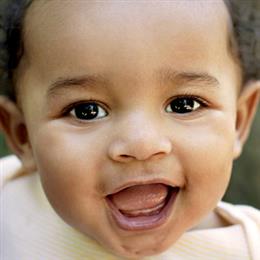
Did I hear right? Yes, most babies start babbling between the age of 12 to 24 months; by this age your baby’s cries and laughter is replaced with enthusiastic babbles, buzzes and hums, with his/her vocabulary increasing eeryday. A baby is able to understand and communicate with all, with his/her vocabulary being 200 to 300 words at 2. Let’s address a few questions to understand this phenomenon better.
When a baby starts talking?
Though most babies are fairly consistent in their development stages the exact age when they hit various developmental stages varies from baby to baby; your baby is on the road to talking if he/she babbles, points to a toy and uses simple sentences though full words are not said yet.
Your baby between the age of 1 and 2 is chatty; both you and the child are excited at the new way of communicating when your daily interactions become more animated and is less one-sided. At this stage your child will be able to point to body parts, familiarise with people or objects when asked; he/she will also follow simple commands and understand short questions.
It is also at this stage that your child is able to listen and understand simple stories, songs and rhymes and would understand pictures in a book and point at them when they are named; story time goes to a whole new interactive level.
Your child starts chatting more and more with time till he/she starts adding new words to one’s vocabulary each month and starts asking some simple one- or two-word questions. Your baby will also be able to put together simple words and express what he/she wants. He/she also learns new words by imitating phrases said by people around him/her.
How can we help babies in chatting/talking?
Language milestones are just a simple guideline; most of us are born with a developmental timetable. Parents should be less concerned with when children attain these milestones and should instead focus on seeing steady developmental progress. It is best understood that communication is more important than articulation.
It is best for parents to foster that simple communication as a grunt or tug of the shirt through chatter to develop language skills. Various ways to develop this skill lies in narrating whatever you are doing or by asking questions.
It would be best here to mention that we should talk to the child as we talk to a person and avoid tailoring your language to your children. Read often to them to develop their communication and language skills.
Help your baby to talk by asking child choice questions that provide models of the potential target words for the child to imitate; giving choices facilitate the child to imitate and repeat the new words.
As a final note, put aside your worry when you are trying to help your child communicate; focus on the connection. You would also find it helpful to maintain a journal of your child"s language development; this will make you empowered when you note changes and measure progress. It would make you feel that you care for your baby and you are doing something about it.
Take the next step toward your goals
Share your requirement and find the best care providers in your area
-
Looking for a caretaker’s job? Build your profile and get in touch with families in your vicinity.
-
Discover nannies, babysitters, cooks, housekeepers, pet sitters, and elder care under one roof.
-
Get all the support you need to run a successful care center.
-
Search for appropriate centers near you depending on your needs.
Care Corner Insights: Blog Library
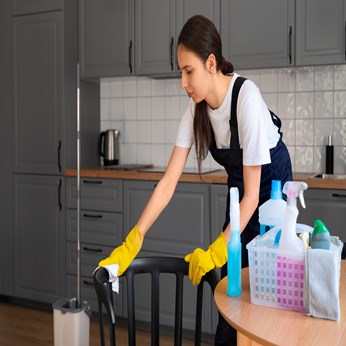
Deep Cleaning Your House: Room-by-Room Checklist for a Thorough Clean
A sparkling clean home isn’t just about looks—it’s about health, comfort, and peace of mind. Whether you’re prepping for a festival, hosting guests, or just tired of the clutter, a deep clean can transform your space. But where do you start? Here’s a

What are Senior Apartments? Experts Explain Independent Living for Older Adults
As we age, our needs and lifestyles evolve—but one thing remains constant: the desire for independence. Senior apartments are designed precisely with this in mind, offering older adults a living arrangement that balances freedom with comfort, safety,
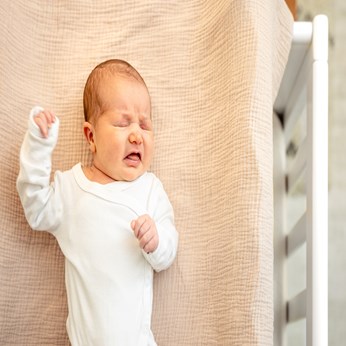
Baby Sleep Problems: What is Sleep Regression and How to Handle It
If you’re a parent, you know that baby sleep is one of the greatest mysteries of life. One day your little one is snoozing like an angel, and the next day they’re suddenly waking up every hour, fussing, or refusing to nap. Before you panic, there’s a
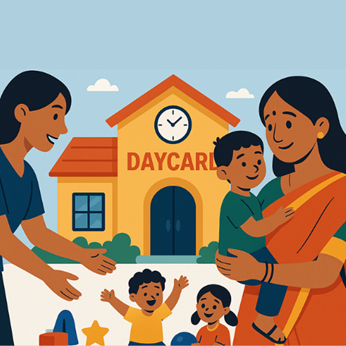
Daycare Admissions in Cary, NC for New NRI Families: Documents, Health Records, and Start Dates
Moving to a new country is exciting but also comes with many responsibilities—especially when it comes to finding the right daycare for your little one. For new NRI (Non-Resident Indian) families settling in Cary, NC, understanding the daycare
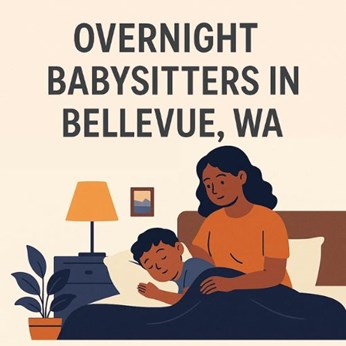
Overnight Babysitters in Bellevue, WA for Business-Travelling NRI Parents: Safety & Policies
For many NRI parents living in Bellevue, WA, frequent business trips are a reality. While traveling, one of the biggest concerns is ensuring your children are safe, cared for, and emotionally supported during overnight stays. Overnight babysitters ca

Indian Home-Style Cooks in Queens, NY: Tiffin-Style Weekly Meal Prep from Your Kitchen
Queens, NY, is home to one of the most diverse food cultures in the country, and Indian cuisine holds a special place among families looking for authentic, comforting meals. While restaurant takeout is convenient, nothing compares to the taste and nu
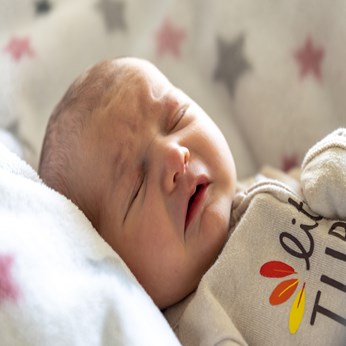
Baby Sleep Problems: What is Sleep Regression and How to Handle It
If you’re a parent, you know that baby sleep is one of the greatest mysteries of life. One day your little one is snoozing like an angel, and the next day they’re suddenly waking up every hour, fussing, or refusing to nap. Before you panic, there’s a

What is Validation Therapy? A New Approach to Dementia Care
Caring for loved ones with dementia is one of the most emotionally challenging journeys a family can face. Traditional methods often focus on correcting memory lapses or redirecting confused thoughts—but that can sometimes lead to frustration, stress
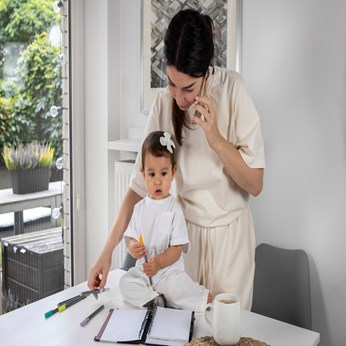
What is a Part-Time Nanny and Do You Need One
Parenting is a beautiful journey, but let’s be honest—it can also be exhausting! Between work deadlines, household chores, and family responsibilities, sometimes there just aren’t enough hours in a day. That’s where part-time nannies step in, offerin
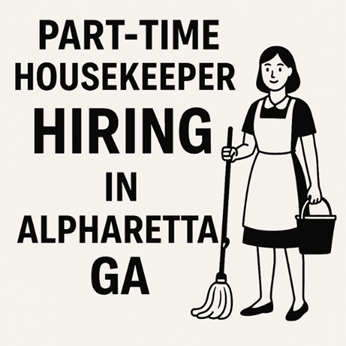
Part-Time Housekeeper Hiring in Alpharetta, GA: Weekly Schedules, Pricing, and Must-Do Tasks
Keeping a home spotless while balancing work, family, and personal commitments can be overwhelming. For families and professionals in Alpharetta, GA, hiring a part-time housekeeper is one of the most practical solutions. Whether you need help once a